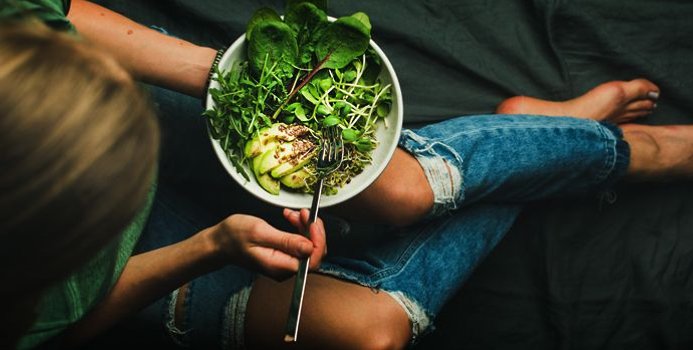You’ve seen the photos on social media. Meticulously arranged quinoa bowls, with tahini-lemon sauce drizzled just so. Bright green smoothies in Mason jars. Chia pudding, kale chips, cashew “cheese,” lentil burgers, cauliflower rice—the list goes on.
From spiralized noodles to homemade energy balls, clean eating isn’t a mere trend: it’s a way of life. And let’s not forget the hashtags: #glutenfree, #sugarfree, #vegan, #wellness, #eatclean.
It’s a movement that grew out of good intentions. Once, eating “clean” meant choosing whole foods, such as fruits and vegetables, whole grains, plant- and animal-based proteins, and healthy fats, and knowing where they came from. Clean eating meant minimizing processed and packaged foods, as well as meals you hadn’t cooked yourself.
In a world of foodstuffs packed with unpronounceable chemical additives—from MSG to high-fructose corn syrup—consumers embraced the shift towards wellness and took to reading labels and decrying the carcinogens lurking in their cupboards.
But in the years since clean eating first appeared, it’s taken on a near-religious connotation that many find alarming. The implication is that if the food you eat isn’t “clean,” it’s dirty or impure—a notion that doctors, nutritionists, and scientists say simply isn’t true.
People have been speaking out against the clean eating movement since its inception, but today, even as the movement continues to attract new followers, dissenters are speaking out.
In a Vice article published on May 16, 2016, baker Ruby Tandoh described her experience with orthorexia, an eating disorder which causes anxiety and rigidity around eating “good” foods and avoiding “bad” foods. Ironically, her eating disorder appeared just as she believed she’d found true wellness—at least, wellness according to social media’s leading lifestyle gurus.
Similarly, the Guardian recently reported on The Balanced Blonde, formerly The Blonde Vegan, another former wellness blogger who turned her back on the movement after realizing her obsession with healthy eating was making her sick.
A BBC-produced investigation led by Dr. Giles Yeo exposed some of the wellness industry’s most dangerous “experts,” and the myths they propagate. Among them is the idea that grains—and more specifically, gluten—are harming us.
The science behind related clean eating movements, such as the alkaline diet, which involves targeted consumption of acidic foods to change the pH of the blood, was also called into question. There’s no research to back up the claim that eating certain foods can alter pH, nor is there any evidence that doing so is beneficial for health.
Some of the diet’s proponents have caused serious harm. Robert O. Young, author of The pH Miracle, who found a clinic which charges patients with terminal cancer exorbitant sums for baking soda injections, has been convicted for practicing medicine without a license.
While spiralizing your veggies isn’t likely to cause harm, it’s important to remember that much of the wellness industry thrives on theories that haven’t or can’t be proven scientifically. You should be focusing on whole, unprocessed foods, but that doesn’t mean you have to eat them 100% of the time. The goal is to make informed choices that also support your needs and lifestyle—and maybe ditch the hashtags.
[Image via Shutterstock]



